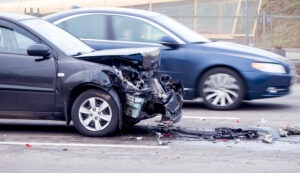
Were you recently traveling as a passenger in a vehicle? Was the vehicle you were traveling in involved in a car crash? If so, what are your legal options?
In some instances, passengers wonder whether they have the right to sue the driver of the vehicle they were traveling in and the driver who caused the accident. Depending on the specific circumstances of your case, you could sue both drivers if their negligent actions contributed to the injuries you sustained. Your car accident lawyer can help you understand who is responsible for causing your injuries and how you can demand justice.
Your Rights as a Passenger
As a passenger, you have the right to be fully repaid for every way you have been affected by the injuries you suffered and the accident that caused them. Anytime you are involved in a collision, the liable party should compensate you for your damages accordingly.
This means you could file a claim against the driver of the vehicle you were in and the driver of the car that crashed into you. Our team of investigators will need to determine whether both parties share liability for your injuries. If the driver of the vehicle you were in shares blame, they should be held accountable for their negligence accordingly.

How to Sue Both Drivers After a Car Accident as a Passenger
Before you can sue both drivers after a passenger car accident, you need your personal injury attorney to gather compelling evidence to support your case. For a personal injury lawsuit to be successful, your lawyer must show that another party’s negligent actions were the cause of your injuries.
You can expect your attorney to conduct a thorough investigation into the accident. We will also need to review police and crash reports which may have made a preliminary determination regarding liability. In many cases, only one driver is responsible for causing the accident. However, in others, both drivers share culpability.
Your attorney will determine whether you have the right to file a claim with both driver’s insurance companies and whether these settlements will be enough to meet your needs. If not, you may need to move forward with a civil lawsuit against the drivers to maximize the compensation you win.
How Passenger Car Accident Insurance Claims Work
As an injured passenger filing a car accident claim, this is considered a third-party liability claim. If you were the vehicle’s driver, you could only file a claim against the other involved party.
However, as a passenger, there are multiple insurance claim possibilities. Several factors can impact how your insurance claim is handled. This includes the type of insurance coverage and the fault laws in the state where the accident occurred.
Types of Insurance Coverage
Nearly every state requires drivers to carry auto insurance coverage. This means you should be able to file an insurance claim with both drivers’ insurance companies. However, suppose one or both drivers do not have insurance coverage or only purchased the bare minimum amount required by law. In that case, an auto insurance settlement may not be enough to cover your losses in full.
When this happens, you may need to file a claim with your auto insurance company if you purchased a no-fault insurance coverage. You could also file a claim with your health insurance company to get certain costs covered. Any losses the liable parties cannot cover through their insurance claims must be covered out of pocket or ordered through a trial verdict.
Fault Insurance Claims
When you live in a state that follows fault insurance laws, you file a claim with the liable party’s insurance company. The insurance company is required to cover your medical expenses, property damages, and sometimes loss of income.
However, this coverage will only extend up to the limits of the policyholder’s policy. This means if the liable party only purchased $50,000 per accident in bodily injury liability coverage, but your medical bills were greater than $100,000, the insurance company will only pay up to $50,000.
No-Fault Insurance Claims
When you live in a state that follows no-fault insurance laws, you file a claim with your insurance company. Your personal injury protection coverage (PIP) is designed to cover certain types and amounts of damages, no matter who caused the accident.
However, filing a claim with your insurer may be ill-advised. In most cases, filing a claim with your insurance company means they will almost certainly raise your auto insurance rates when it is time to renew your policy.

Factors Impacting Your Passenger Settlement
Multiple factors could impact the compensation you recover as a passenger after a car accident. Some of these include:
Having Multiple Injuries
When you suffer multiple or catastrophic injuries while traveling as a passenger, it could significantly impact the compensation you recover. You are entitled to total compensation for your damages.
However, the insurance company may require you to wait until you reach maximum medical improvement (MMI). Depending on the severity of your injuries, it could be months or longer before you regain functionality and are well enough to begin rebuilding your life.
Additionally, if multiple passengers were injured in the accident, your settlement could be reduced further, as those passengers will also be filing a claim against both drivers.
The Statute of Limitations
If your claim is not filed before the statute of limitations runs out, you cannot move forward with your claim. The law prohibits you from having your case heard in court if your lawsuit is not filed before time runs out.
If you were going to file a claim with the insurance company, you might have as few as 30 days to do so before the insurance company refuses to settle. However, you can rest easier knowing your car accident attorney will ensure your insurance and civil claims are filed before these crucial deadlines.

Contact a Personal Injury Attorney for Help with Your Passenger Claim Today
If you suffered critical injuries as a passenger in a motor vehicle, you have the right to total compensation for your damages. The liable party should be ordered to repay you for your damages accordingly. This means you can file a claim against the driver that hit you and the driver operating the vehicle you were traveling in.
Find out more about when you can sue both drivers after a car accident when you contact an experienced passenger car accident attorney at Shelly Leeke Law Firm for a free, no-obligation consultation. You can reach us through our convenient contact form or phone to take advantage of this opportunity today.







